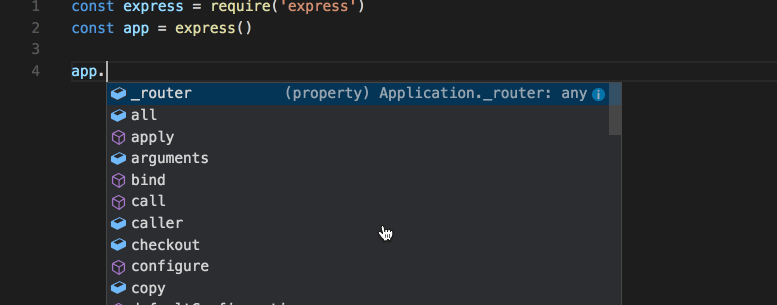GitHub Codespaces - The Professional Standard
GitHub Codespaces feels almost identical to local VS Code. Built on the same VS Code foundation, it provides native extension compatibility and familiar workflows without compromises. The integration with GitHub repositories is seamless - every repository gets a "Code" button launching a fully configured development environment in seconds.
Pricing Reality: The free 120 hours runs out faster than you'd expect if you actually use it. I hit my limit in week 2 and got slammed with a $247.82 bill. Made me seriously reconsider my life choices. 2-core machines cost $0.18/hour, but try running npm run build on a large TypeScript project with that - Node.js 18.12.0 will throw JavaScript heap out of memory and you'll want the 8-core option at $0.72/hour.
Enterprise adoption drives Codespaces' roadmap. Shopify migrated their entire engineering team after spending too much on IT support for broken local environments. The prebuild feature can reduce startup times to 10 seconds when it works. Without prebuilds, you're looking at 3-5 minutes watching npm install crawl through your dependencies.
Development Experience: VS Code extensions work identically to desktop versions, until you try to use that one extension that requires local file system access and throws ENOENT: no such file or directory errors. CPU-intensive builds can be slower than your local machine, especially if you're on the free tier with 2 cores. GitHub Actions integration helps with CI/CD workflows, while port forwarding handles localhost testing. However, GitHub now offers GPU-enabled Codespaces instances for ML workloads that would melt your laptop.

CodeSandbox - Frontend Development Perfection
CodeSandbox fixed the "npm install takes forever" problem by running everything in browsers. Unlike traditional cloud IDEs requiring server instances, CodeSandbox runs entirely client-side using WebContainers, delivering instant startup times and offline capability once loaded.
The platform excels at frontend workflows. React, Vue, Angular, and Svelte projects launch immediately with hot reloading, package installation, and deployment built-in. GitHub integration allows importing any repository into a runnable sandbox within seconds, perfect for code reviews, bug reproduction, and rapid prototyping.
Collaboration Features set CodeSandbox apart. Multiple developers edit simultaneously with real-time synchronization, live cursors, and integrated voice chat. The sharing model resembles Google Docs - send a link, start collaborating immediately. Public sandboxes serve as living documentation, allowing teams to share examples and maintain component libraries.
Limitations emerge with real backend work. CodeSandbox is perfect for React demos, completely useless if you need to touch a database. Try connecting to PostgreSQL and you'll get Error: Cannot resolve module 'pg-native' - because browser security is designed to ruin your day. I learned this during a client demo when I needed to show user authentication and the PostgreSQL driver just wouldn't load. Docker support helps but you're still stuck in browser-land, limited by WebAssembly capabilities and CORS policies. For real backend work, try GitHub Codespaces or Gitpod.


Gitpod - Git-Native Development
Gitpod pioneered the concept of ephemeral development environments tied to Git workflows. Every branch, pull request, and issue can launch its own isolated workspace, eliminating environment conflicts and enabling true branch-based development.
The Gitpod workflow transforms team dynamics. Code reviews become interactive - reviewers click links to launch complete development environments with changes applied. Bug reports include runnable reproductions. New team members start contributing immediately without local setup friction. GitLab integration allows launching workspaces directly from issues, streamlining project management workflows.
Configuration through .gitpod.yml files should make environments reproducible, but YAML syntax is a fucking minefield. One wrong indentation and you're debugging for an hour while the error message helpfully tells you 'failed to parse .gitpod.yml' without saying where. I spent 3 hours debugging a prebuild that failed because line 12 had tabs instead of spaces - YAML v1.2 spec is a nightmare. The prebuilds are clever when they work, but expect to burn credits learning the configuration while cursing whoever thought invisible syntax errors were a good idea.
But once you get past the YAML hell, self-hosted options actually solve the enterprise security problem. Organizations can deploy Gitpod within their infrastructure while maintaining the same developer experience. Major open-source projects adopted Gitpod to reduce contributor onboarding friction - no more "please install these 15 dependencies" in README files.
Performance is hit-or-miss depending on what you're building. Standard 1.7GB RAM works fine until you try running tests and get JavaScript heap out of memory - again. Because apparently Node.js thinks 1.7GB is just a suggestion. Large workspaces with like 32GB RAM fix the problem but cost way more, because nothing in this industry is ever reasonably priced.

StackBlitz - Instant Web Development
StackBlitz delivers the fastest development experience through WebContainer technology, running Node.js entirely in browsers without server round-trips. This architecture enables sub-second startup times and responsive editing even on slow networks.
Framework integration is what makes it useful. Angular, React, Vue, and Svelte projects boot instantly with dev servers that actually work, unlike your local setup that breaks every OS update. The platform maintains official templates for major frameworks, ensuring compatibility and optimal performance. Integration with Angular's documentation provides interactive examples throughout their guides.
WebContainer tech runs Node.js right in your browser without server round-trips, so it boots instantly even on shit wifi.
Educational institutions embrace StackBlitz for its simplicity. Students access consistent development environments across devices without installation requirements. The platform supports classroom management features, allowing instructors to distribute assignments and review submissions efficiently.
Enterprise adoption remains limited because enterprises need to do enterprise things that browsers hate. While StackBlitz runs full-stack applications, try connecting to your corporate Oracle database from a browser and watch security policies laugh at you. I once spent 4 hours debugging Cross-Origin Request Blocked: Mixed Content errors trying to connect to an internal API that used HTTP instead of HTTPS. The browser security model prevents certain operations essential for enterprise applications, which is probably for the best but frustrating when you need to get actual work done.



